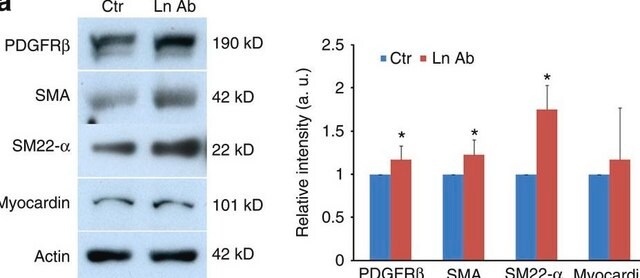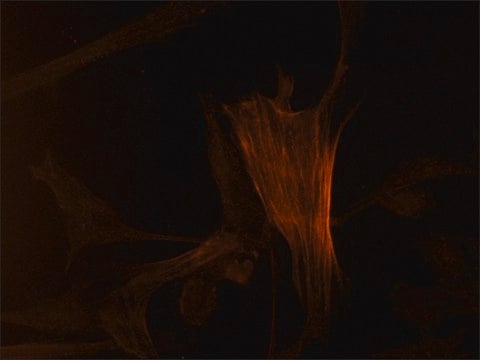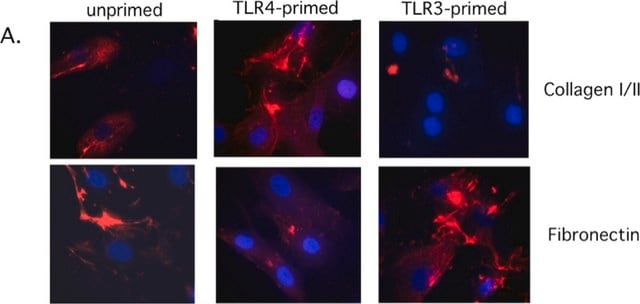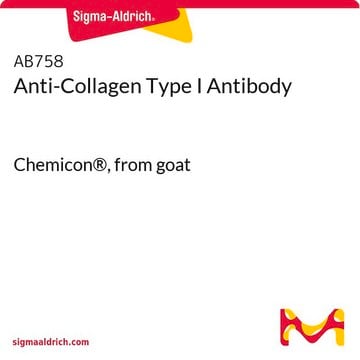A5691
Anti-actina, α-músculo liso monoclonal
clone 1A4, purified from hybridoma cell culture
Sinónimos:
SMA
About This Item
Productos recomendados
biological source
mouse
Quality Level
conjugate
alkaline phosphatase conjugate
antibody form
purified from hybridoma cell culture
antibody product type
primary antibodies
clone
1A4, monoclonal
form
buffered aqueous glycerol solution
mol wt
antigen ~42 kDa
species reactivity
human, mouse, rat, chicken, frog, canine, rabbit, guinea pig, goat, bovine, sheep, snake
technique(s)
ELISA: suitable
immunohistochemistry (formalin-fixed, paraffin-embedded sections): 1:20 using human tonsil or appendix sections
western blot: 1:100 using chicken gizzard extract/ Mouse heart extract
isotype
IgG2a
UniProt accession no.
shipped in
wet ice
Storage temp.
2-8°C
target post-translational modification
unmodified
Gene Information
mouse ... Acta2(11475)
rat ... Acta2(81633)
¿Está buscando productos similares? Visita Guía de comparación de productos
General description
Immunogen
Application
Se realizó análisis mediante IHC de tejido cardiaco de ratón teñido con x-gal utilizando el anticuerpo monoclonal primario anti-actina de músculo liso de ratón para identificar los miofibroblastos.
Immunohistochemistry (1 paper)
Physical form
Other Notes
Disclaimer
¿No encuentra el producto adecuado?
Pruebe nuestro Herramienta de selección de productos.
Storage Class
10 - Combustible liquids
wgk_germany
WGK 2
ppe
Eyeshields, Gloves, multi-purpose combination respirator cartridge (US)
Certificados de análisis (COA)
Busque Certificados de análisis (COA) introduciendo el número de lote del producto. Los números de lote se encuentran en la etiqueta del producto después de las palabras «Lot» o «Batch»
¿Ya tiene este producto?
Encuentre la documentación para los productos que ha comprado recientemente en la Biblioteca de documentos.
Los clientes también vieron
Nuestro equipo de científicos tiene experiencia en todas las áreas de investigación: Ciencias de la vida, Ciencia de los materiales, Síntesis química, Cromatografía, Analítica y muchas otras.
Póngase en contacto con el Servicio técnico













